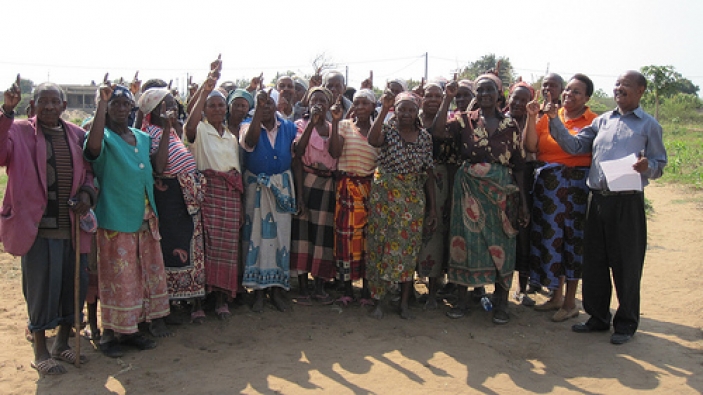Bridget Sleap, HelpAge’s Rights Policy Advisor, writes about older people’s rights on Human Rights Day:
Across the world, populations are ageing. There is no denying that this phenomenon presents huge challenges. How do you protect the rights of an ageing population? How do you build stronger, more inclusive societies?
Equal members of society
Taking a human rights approach can help. Protecting older people’s rights, treating them with respect and on an equal basis with younger people will enable them to lead dignified, secure lives, as equal members of society, as is their right.
Human rights and development go hand in hand – respecting people’s rights results in better development, where respect, dignity and having a say are recognised alongside material security as important to people’s wellbeing.
Increased protection of older people’s rights creates the conditions which enable them to contribute to their own development and that of those around them. The human rights system, with its international law, underlying principles and implementation mechanisms, provides a framework to guide policy decision-making.
A rights-based approach
Importantly, a rights-based approach would help change the view of older people from recipients of welfare to individuals with knowledge, power and experience. Increased respect for older people will improve relationships between different generations and make societies more cohesive.
Of course, governments, the business sector and civil society have to confront the difficult issue of how to allocate limited resources to competing priorities. Using a human rights framework can help guide these decisions by ensuring a focus on those who are most marginalised and discriminated against.
Waking up to age discrimination and ageism
“Age discrimination” refers to when someone is treated differently because of their age. Age discrimination continues to result in violation of older people’s rights. Laws prohibiting age discrimination exist in some countries, but are often limited to employment.
“Ageism” is the stereotyping and prejudice against older people that can lead to age discrimination. Ageism continues to be acceptable, tolerated or ignored across the world.
Mocked, patronised or worse…?
At one extreme, older women and sometimes men are branded as witches, forced out of their homes or even murdered. At the other end of the scale, older people are patronised and mocked on TV, in films and in advertising. Even this can be dangerous. Research by Yale University showed that negative stereotypes of older people in the US had a harmful impact on older people’s memory, balance and even length of their life.
A new UN convention on the rights of older people will help combat ageism – but it is up to all of us to challenge and speak out against ageism and age discrimination in our everyday lives.
Read more about HelpAge’s work on older people’s rights.
